Shio Yudetamago is a popular Japanese snack commonly found in convenience stores across Japan, and it just might change how you think about boiled eggs. By seasoning the eggs while they are still in their shells, you can enjoy a uniquely mild and salty flavor.
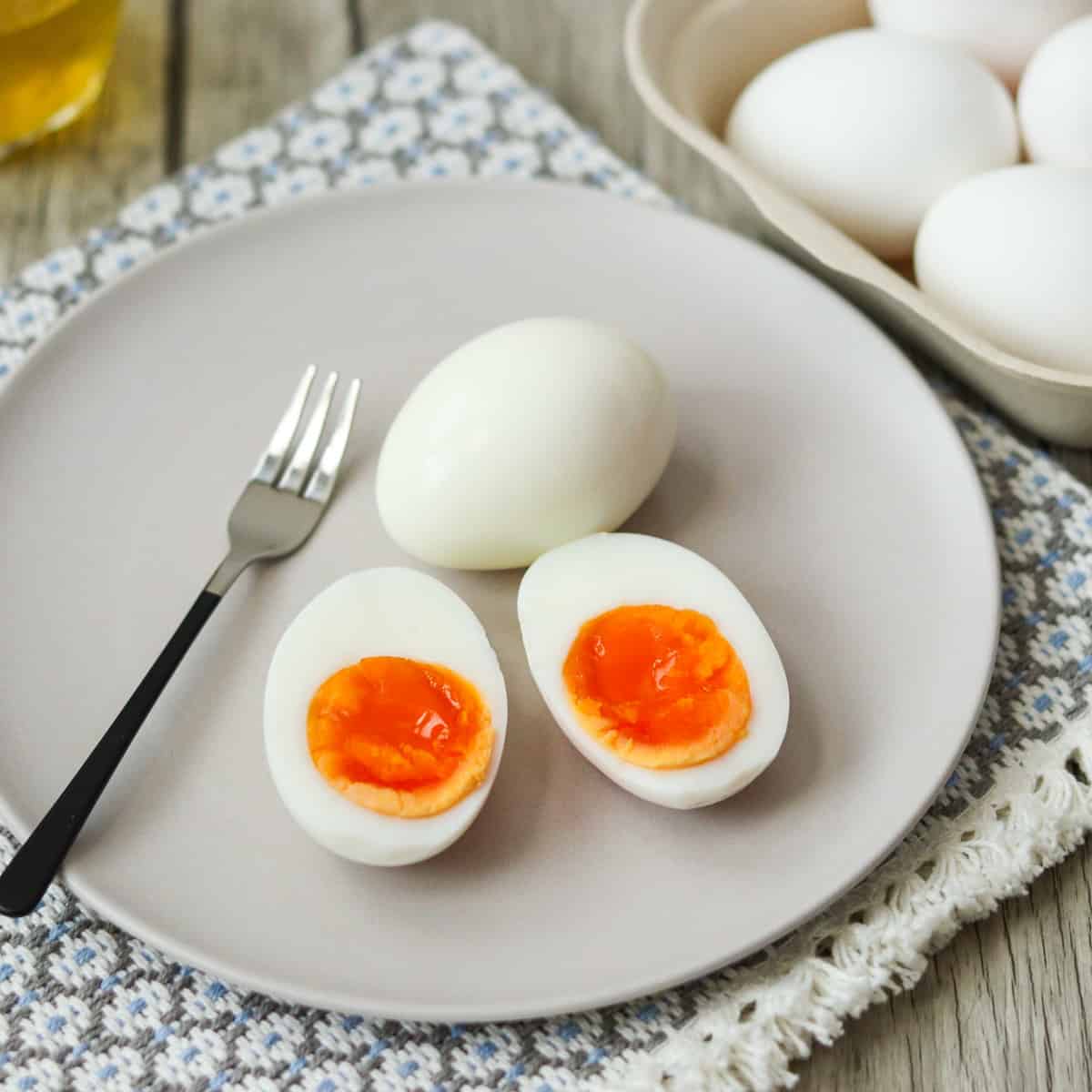
Jump to:
What is Shio Yudetamago?
Shio Yudetamago is a popular Japanese snack made by boiling eggs and seasoning them with salt while still in their shells. "Shio" means salt, and "Yudetamago" refers to boiled eggs. Instead of sprinkling salt onto peeled boiled eggs, this snack is seasoned inside the shell through osmotic pressure, resulting in mildly salted boiled eggs.
Similar to nitamago (Japanese seasoned boiled eggs, without shell), this snack can also be used as a ramen topping. No special ingredients are needed to make it, so feel free to give it a try! You are sure to be both surprised and impressed.
How to infuse flavor into boiled eggs in their shells
Some people might think that adding salt to the water used for boiling eggs will not result in eggs with a salty taste. That is absolutely correct: no matter how much salt you add to the water, the eggs will not taste salty. To infuse a salty flavor into the eggs while they are still in their shells, you need to soak them in a salt solution for a long time after boiling.
To infuse the flavor, a saturated brine solution is used. Eggshells contain thousands of microscopic pores, and by soaking the boiled eggs in the brine, osmotic pressure allows the salt to penetrate through those pores and infuse the eggs with flavor.
For this process, make sure to use freshly boiled eggs and chilled brine. The temperature difference helps the salt penetrate the shell’s pores more easily, allowing the flavor to be absorbed more effectively.
Although this might sound like a complicated scientific experiment, the actual cooking process is quite simple. Additionally, it doesn't require any special kitchen tools, so there is no need to worry.
Boiling time guide to achieve your preferred egg consistency
Similar to regular boiled eggs, shio yudetamago (Japanese salted boiled eggs) can be cooked to your preferred egg consistency by adjusting the boiling time.
The following guide shows how the consistency of eggs changes over time when they are taken straight from the refrigerator and boiled over medium heat in plenty of water. Use this as a reference to achieve your desired texture.
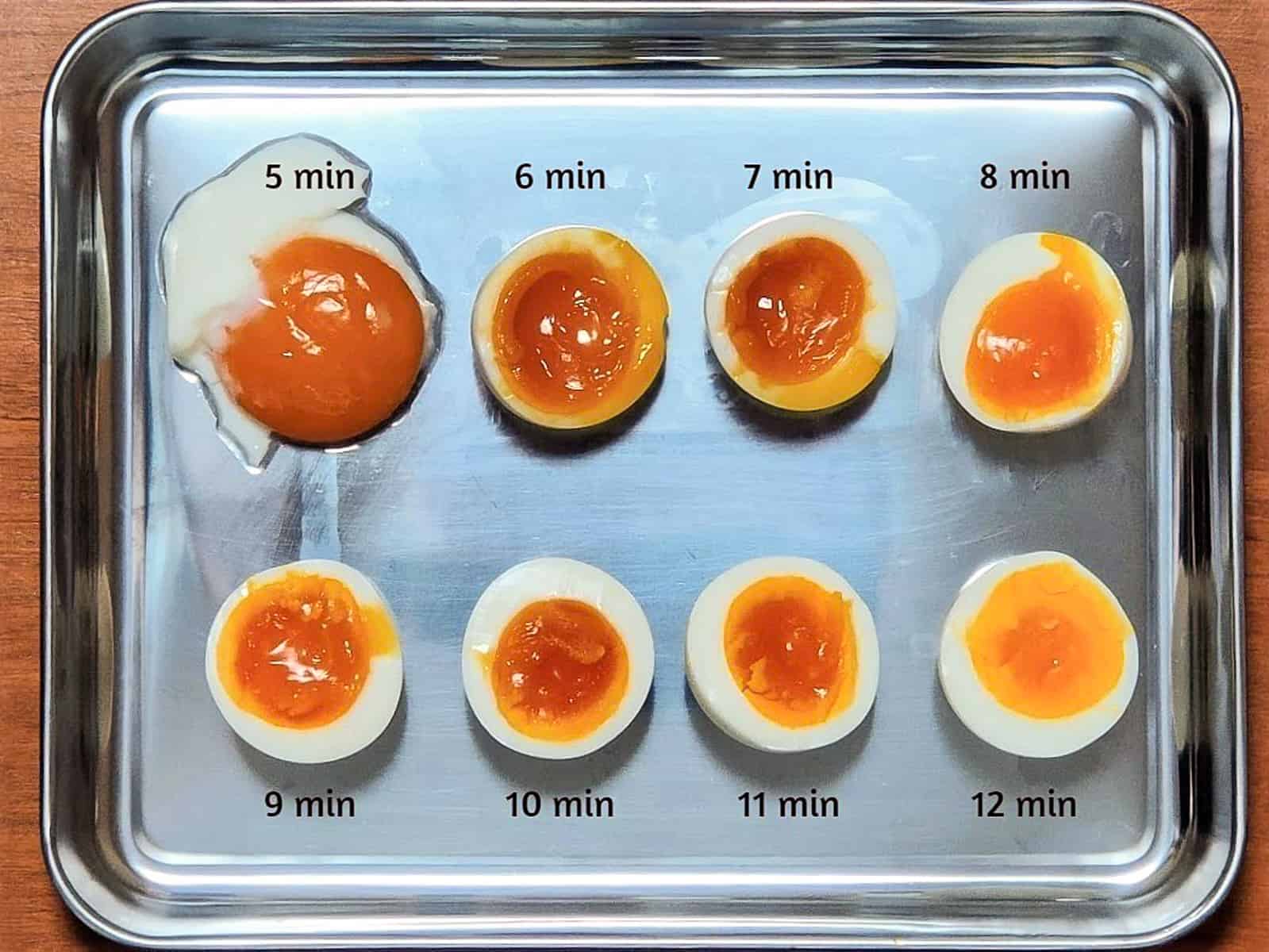
5 mins: The egg white begins to set.
6 mins: The outer part of the yolk slightly solidifies but still flows when cut.
7 mins: The egg becomes soft-boiled. The yolk is slightly firm and flows out less, while the white is set but still tender.
8 mins: The egg remains soft-boiled. The center of the yolk is runny, but it hardly flows out when cut.
9 mins: The yolk is less runny but still moist.
10 mins: The outer part of the yolk is hard-boiled, but the center is still moist.
11 mins: The yolk is quite set.
12 mins: The egg is mostly hard-boiled. The yolk is almost fully cooked.
However, keep in mind that shio yudetamago doesn't require cooling the eggs in cold water after boiling, so the eggs may continue to cook slightly beyond the specified times.
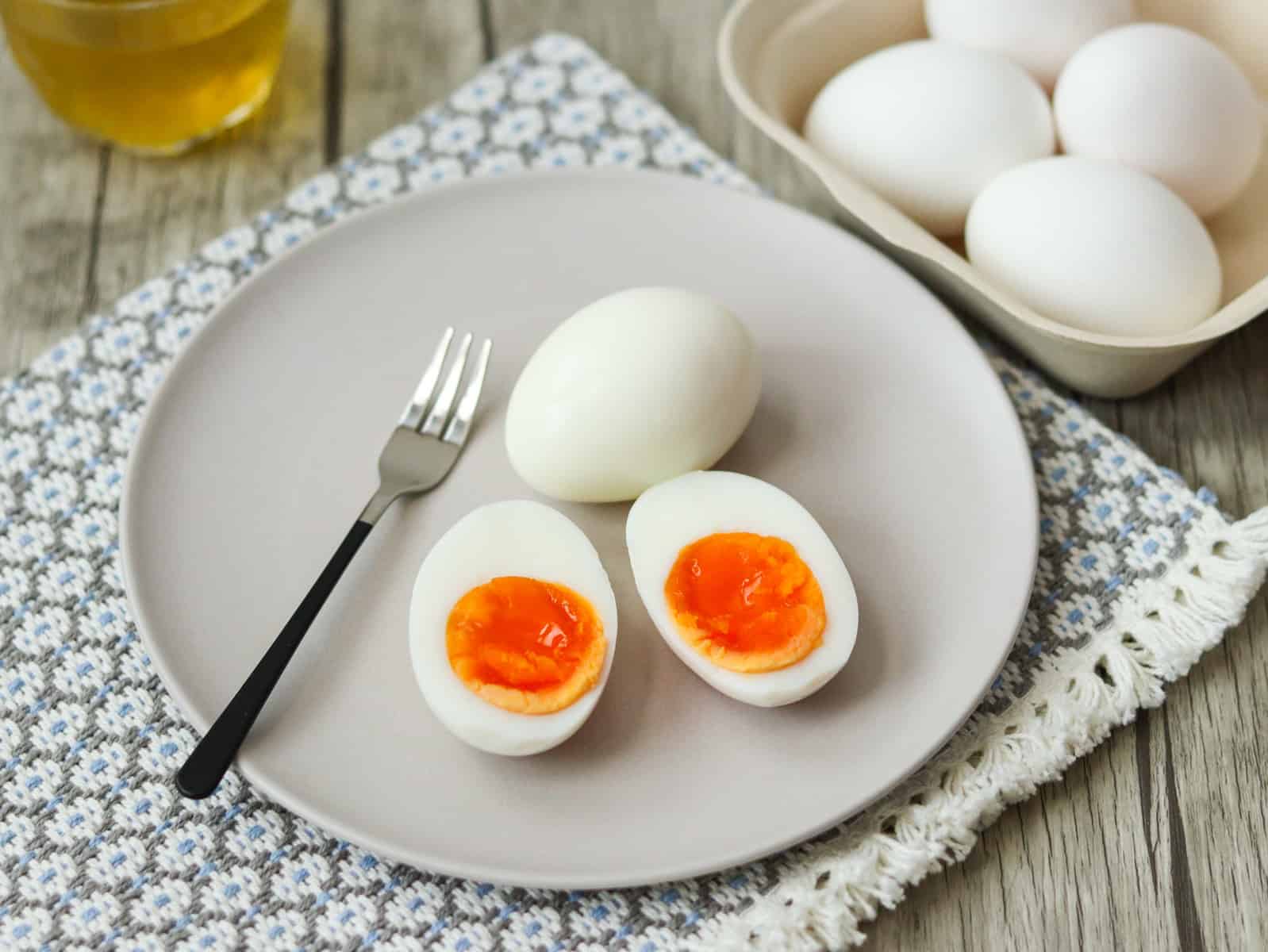
📋Step-by-step recipe
Ingredients
- 4 eggs
- 1 cup water
- 2.8 oz salt
Instructions
🕒 Total: 13 hrs 20 mins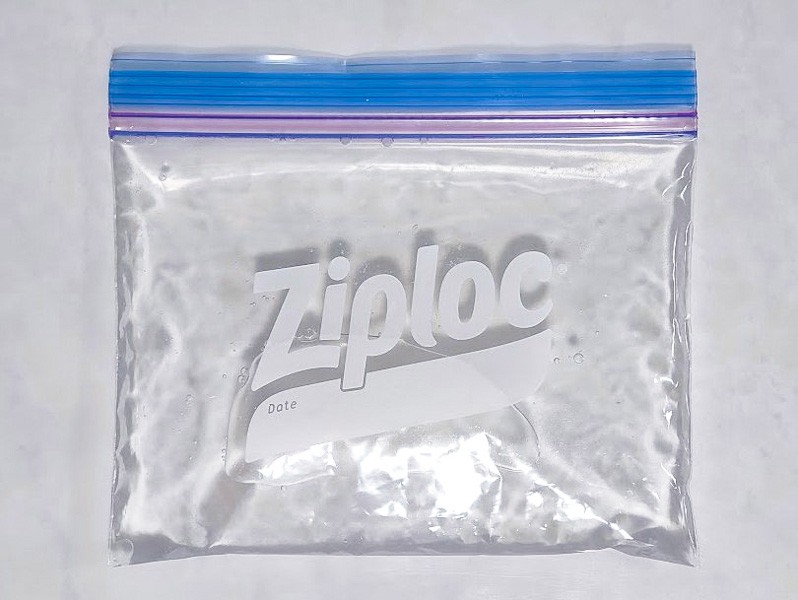
Step 1
Put the water and salt in a Ziploc bag and mix well until the salt is dissolved (it's okay if it doesn't dissolve completely). Place the bag in the refrigerator and let it chill for about an hour.
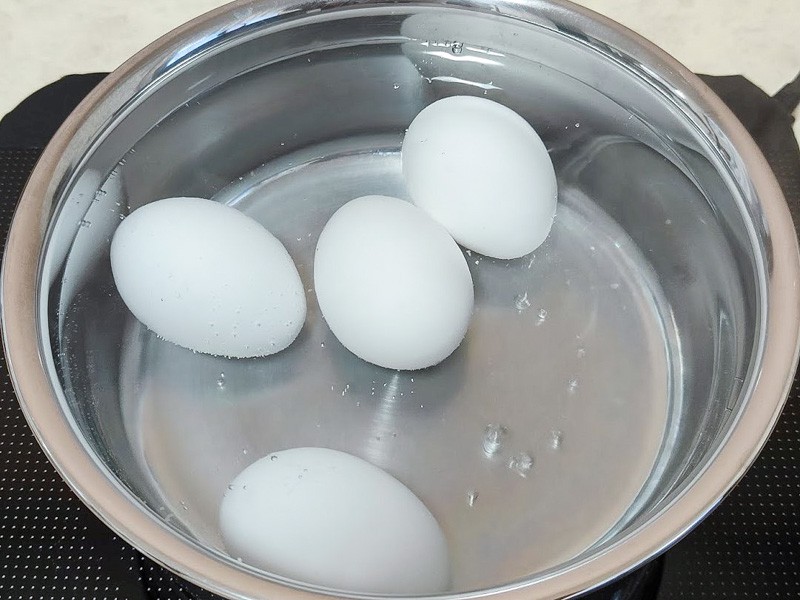
Step 2
Fill a large pot with plenty of water and bring it to a boil. Once boiling, reduce the heat to medium and carefully lower the eggs, straight from the refrigerator, into the pot one at a time using a slotted spoon or ladle. Let them cook for 7 minutes for a soft-boiled consistency, or adjust the time to your preference.
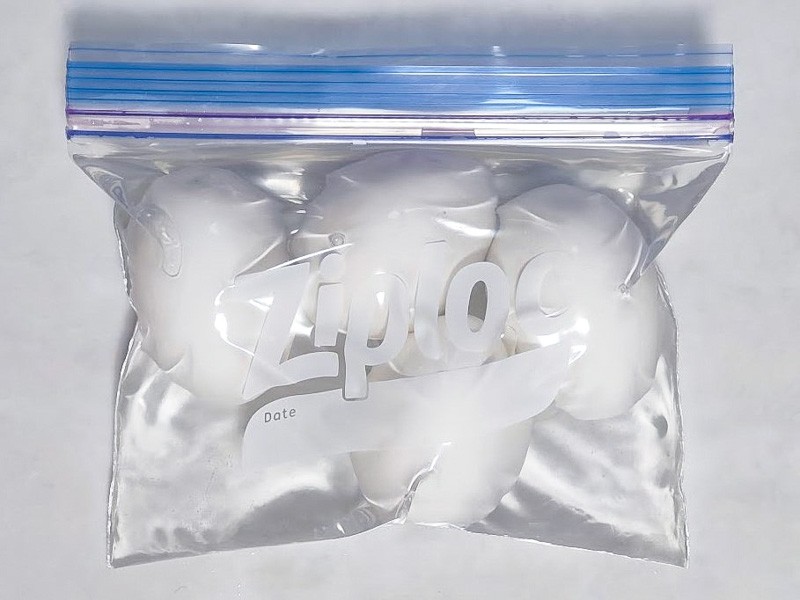
Step 3
Take the Ziploc bag out of the refrigerator. Once the eggs are cooked, remove them from the pot and place them into the bag while still hot, then seal it, pressing out as much air as possible. After the eggs have cooled, place the bag back in the refrigerator and let it sit for 12-18 hours.
To store
You can store it in the refrigerator for up to 2 days with the shell still on after removing it from the Ziploc bag. If it is hard-boiled, it can be kept for up to 3 days.
Cooking tips
- If you let the eggs come to room temperature before boiling them, you should reduce the boiling time by 30 seconds to a minute (this can vary depending on the room temperature). In this case, you will need to wait until the eggs reach room temperature, but the likelihood of them cracking during boiling will be reduced.
- It is recommended to add the eggs after the water has come to a boil. When you place the eggs in room-temperature water and then bring it to a boil, it becomes difficult to determine the cooking time to achieve a soft-boiled consistency. However, this isn't an issue if you are making hard-boiled eggs.
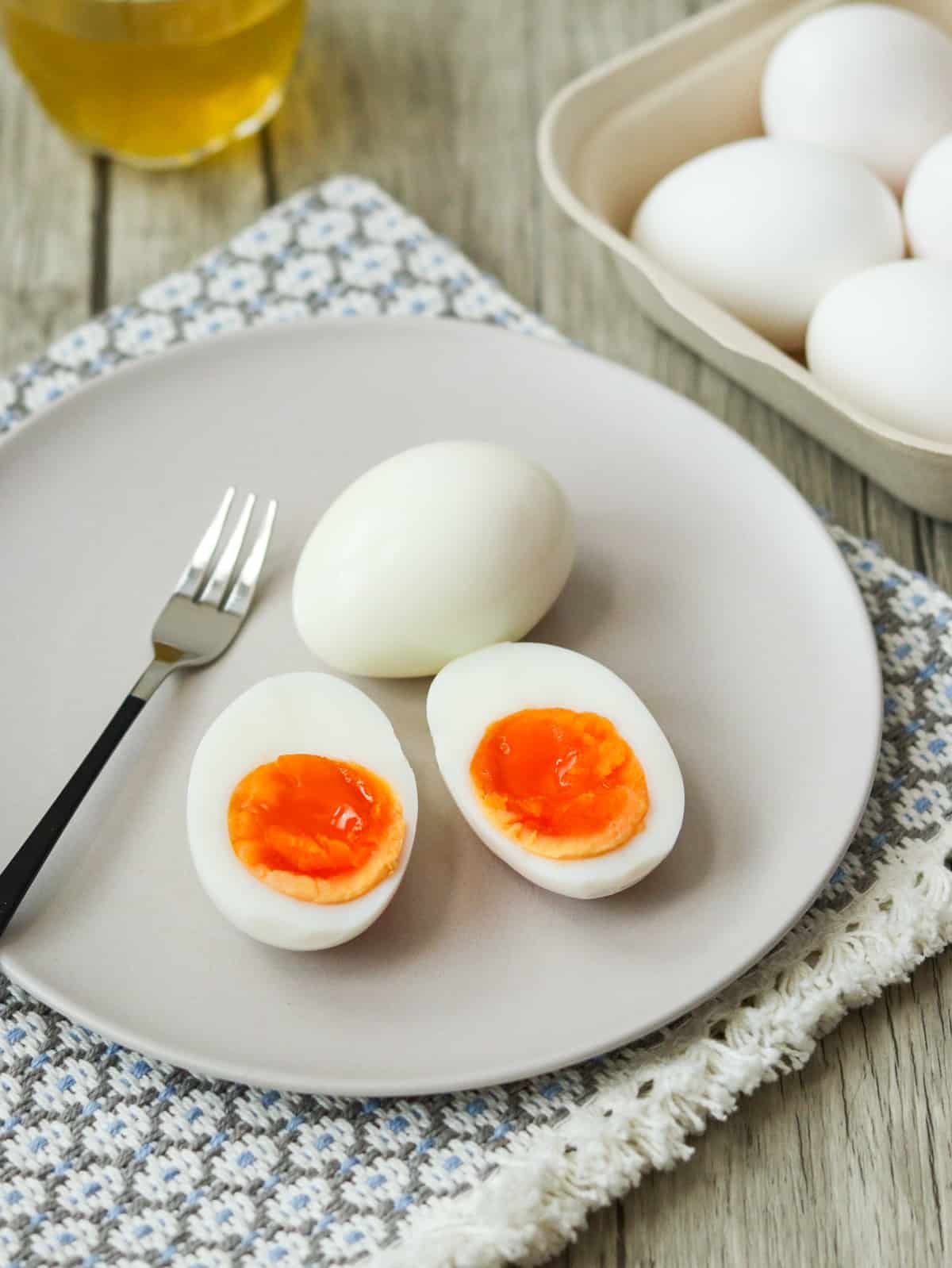
If you try this recipe, I’d love to hear what you think. Please consider leaving a review and star rating in the comments below. If you enjoyed it, I’d really appreciate it if you shared it with your friends.
More egg recipes you'll love
Recipe card

Shio Yudetamago (Japanese Salted Boiled Eggs with Shells On)
Ingredients
- 4 eggs
- 1 cup water
- 2.8 oz salt
Instructions
- Put the water and salt in a Ziploc bag and mix well until the salt is dissolved (it's okay if it doesn't dissolve completely). Place the bag in the refrigerator and let it chill for about an hour.
- Fill a large pot with plenty of water and bring it to a boil. Once boiling, reduce the heat to medium and carefully lower the eggs, straight from the refrigerator, into the pot one at a time using a slotted spoon or ladle. Let them cook for 7 minutes for a soft-boiled consistency, or adjust the time to your preference.
- Take the Ziploc bag out of the refrigerator. Once the eggs are cooked, remove them from the pot and place them into the bag while still hot, then seal it, pressing out as much air as possible. After the eggs have cooled, place the bag back in the refrigerator and let it sit for 12-18 hours.
Notes
- You can store it in the refrigerator for up to 2 days with the shell still on after removing it from the Ziploc bag. If it is hard-boiled, it can be kept for up to 3 days.

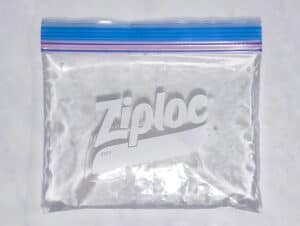
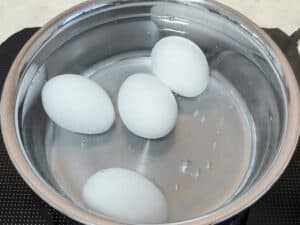
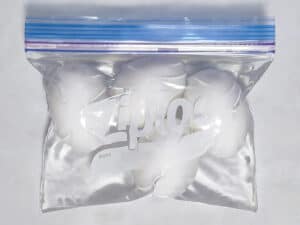
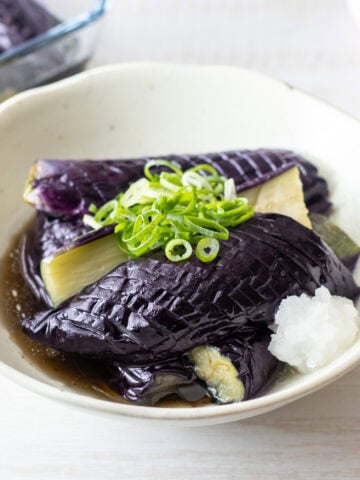



Jean G. says
I love these lightly salted eggs. Found them in japan convenient store I will try this recipe these eggs at home. Thank you for the recipe!
Ryo Hikita (Umami Pot) says
Thanks for your comment! These might not taste exactly like the ones you had in Japan, but they should be pretty close. Hope you enjoy making them at home!